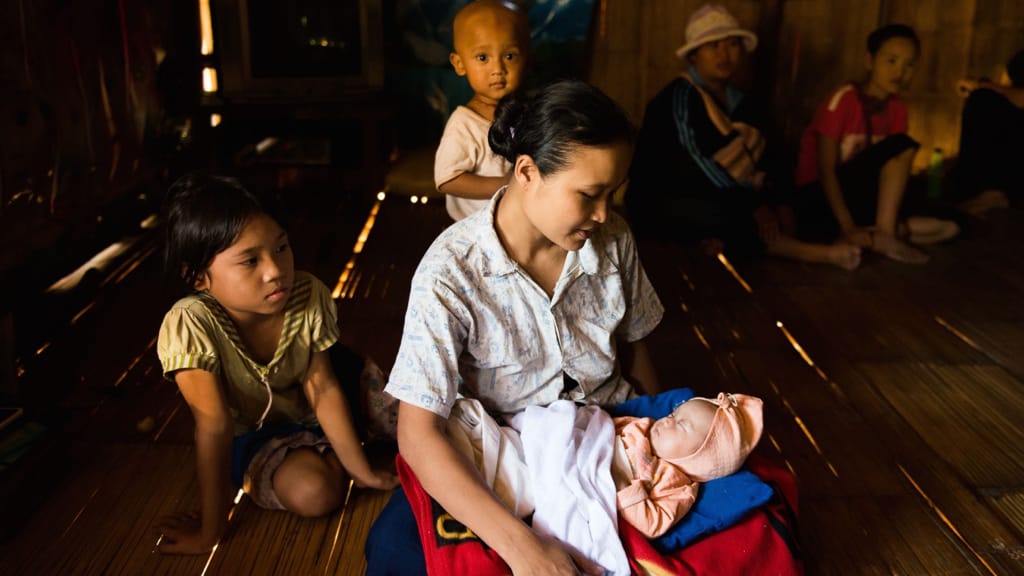Maternal Health Awareness and Baby Kit Project, Karen state Myanmar

August 27, 2020
What the project does
This project provides health awareness training through the distribution of baby kits to new mothers in five villages within Karen state Myanmar, including Ee Htu Hta IDP camp.
Each baby kit includes laundry soap, body soap, baby wraps, clippers and an important health message that provides valuable information to women who may otherwise not know how to care for themselves or their babies after birth. The health message is crucial for new mothers, as it addresses the problem of infant and maternal mortality by educating them and allowing them to interact with others through the community health workers, who distribute the kits. Many mothers are also illiterate so the workers can give the information in person.
Few everyday items that many take for granted are absent in the displaced communities in Myanmar. Even basic hygiene items like soap are an amenity unavailable to many displaced individuals, especially mothers and newborn babies.
In addition to the baby kits, the funding is also used for conducting Women’s Health Awareness and nutrition guidance providing women with 1kg of beans every month from their 3rd month of pregnancy. Women feel the immediate benefit of this because there is a good deal of ignorance in about nutrition. Few mothers are aware that some foods affect the growth of the baby.
Long-term results
Educating individual communities is certainly proving valuable for addressing health problems. We have seen how the distribution of the baby kits strengthens the capacity of people at district and township level as well as benefiting the women and babies. More and more women are becoming empowered as they improve their understanding of the issues relating to pregnancy and care for their babies. For example, some women said that before they attended these sessions, they never knew that the first milk is good for the newborn babies. They always used to throw away the first milk, and then they did not feed their child sometimes.
Funding
Costs include the contents of the kit, transportation of community workers, food supplements, health workshops
Beneficiaries
One mother said “While we are displaced we don’t have enough clothes or food or shelter. We have to move from here to there. In this time we received a gift so it made us feel so happy. Even if we received only a piece of cloth and a bar of soap, I feel so happy and I feel like somebody cares for me and is willing to help me, even to go through all the obstacles to get to me. So I felt very encouraged.”
A camp leader said: “Because we are able to distribute Baby Kits our community and mothers and babies benefit while they are in difficult circumstances. Even if some mothers only received a few items, the whole family feels better. We hope this project will continue and expand.”
Background
In Karen State south-western Myanmar, women and children live in communities that have suffered for many years from extreme poverty, lack of basic health services and education. The maternal and infant mortality rate in Myanmar is one of the highest in the world.
Despite a ceasefire agreement, villagers continue to be targeted by the military and are forced from their homes. Some reach internal displacement camps like Ee Htu Hta while others live a precarious existence in nearby villages. Community workers encounter obstacles as they move around between the villages and often reaching medical assistance can take days.
The programme is administered by Karen Women’s Organisation (KWO), an ethnic women’s community-based organization, all of whom are refugees or internally displaced themselves.